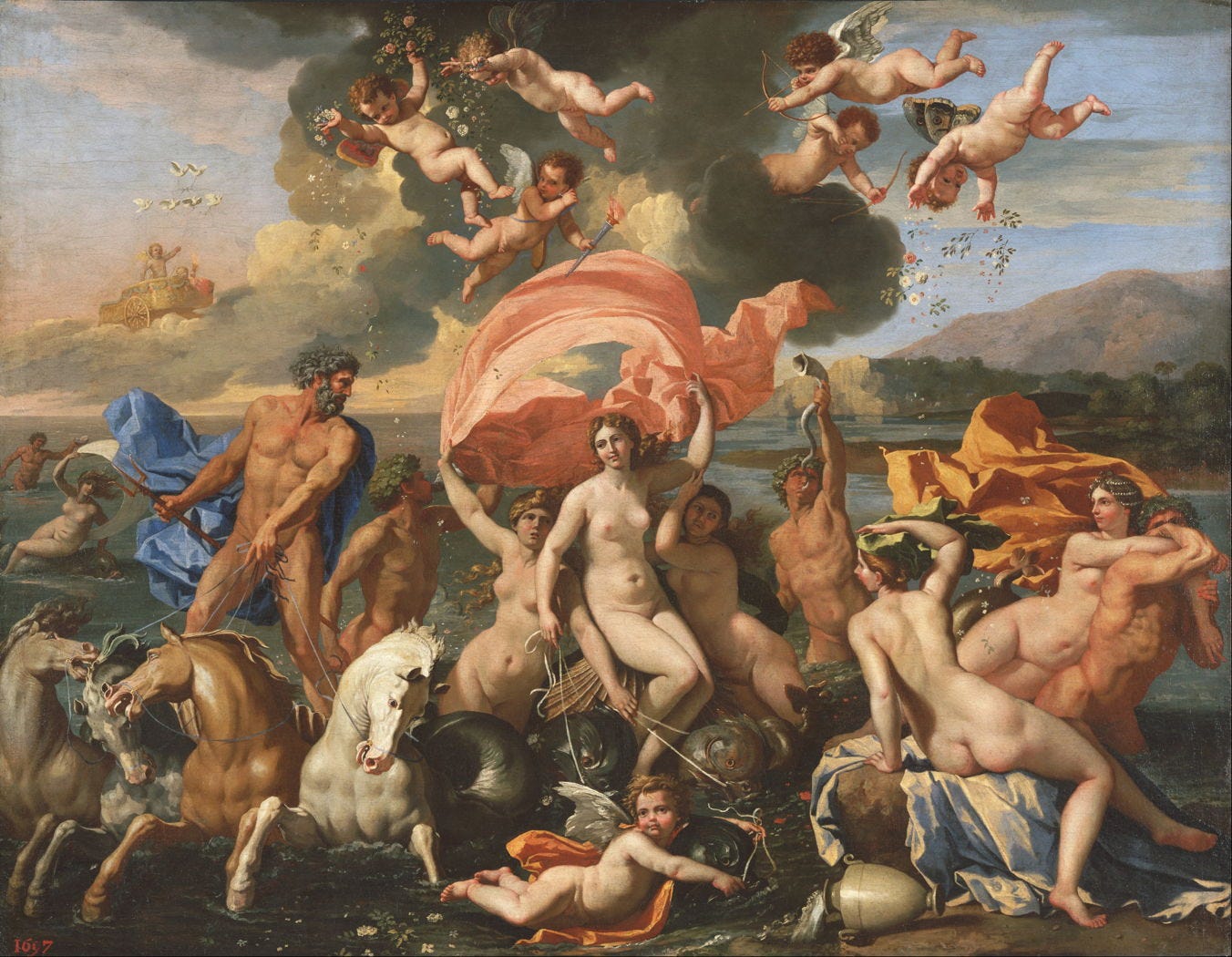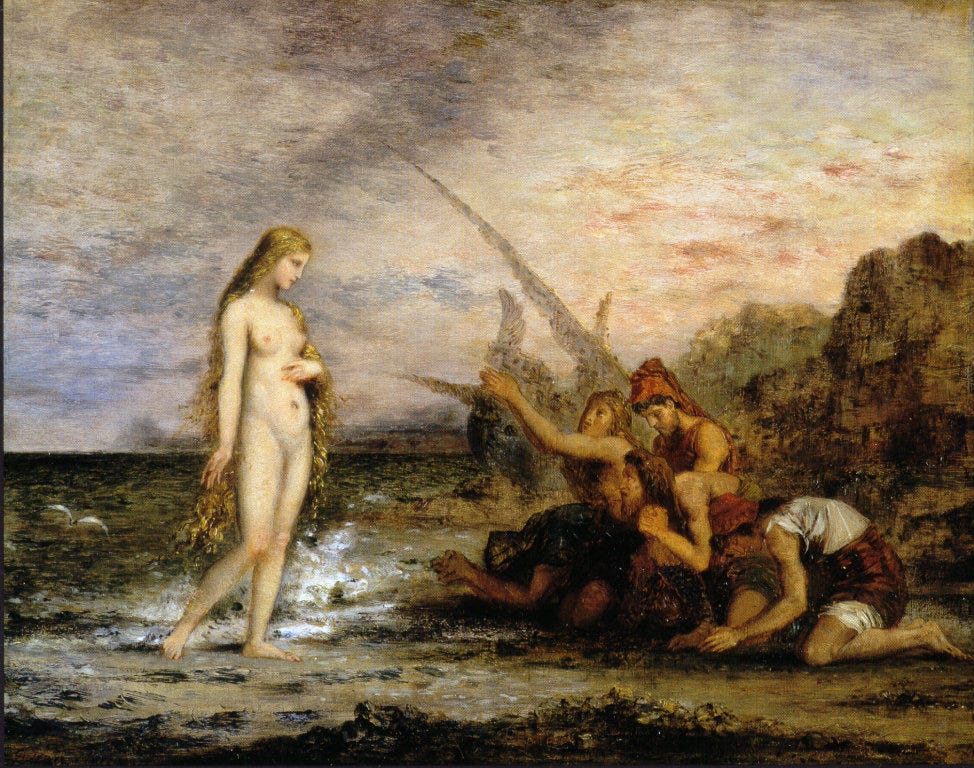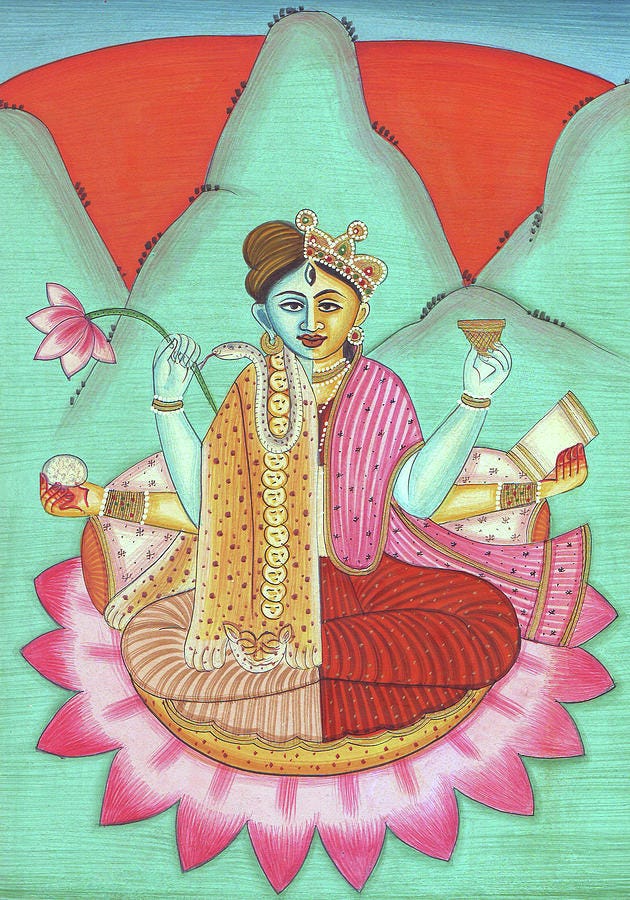The Power of the Feminine
An excerpt from Marion Woodman's keynote address at the 3rd Annual Women & Power Conference, 2004
The last time I spoke to you — I closed with an image of the goddess coming in on a wave. And she was coming in with her arm up like this and the strength in that body and darkness. And she was on her way to land. And all these women — particularly women—they were the droplets in the water. And those droplets were carrying this woman into land. I would suggest to you that we’re much closer to the power of that wave now than we were a year ago.
Nicolas Poussin (1594–1665), The Birth of Venus (1635-36), oil on canvas, 97.2 x 108.1 cm, Philadelphia Museum of Art, Philadelphia, PA. Wikimedia Commons.
It’s becoming more and more clear that the old way is not going to work. We can no longer say I am right and you are wrong. We can no longer make fun of people who don’t think the way we do. There is a shift in consciousness, and that wave that we are all a part of has radically changed. And if you think back to when you were a child, I’m sure you looked at the globe, you know, the world, and you thought China is a long, long way away, I’ll never see China. And all of these parts were unrelated. Where I see the hope is that we are now one world. We’ve been praying that for a long time, that we would be one world.
Now technology has made us one world. And we haven’t got the slightest idea what to do with it. We don’t know morally what to do. Ethically what to do. Politically impossible. And the dangers are becoming more and more terrifying. And what I’m suggesting to you in that dream of that woman coming in on that wave, it is the feminine principle that can bring a whole different thinking process to the patriarchy, as we have known it. Patriarchy thinking that way cannot work.
Gustave Moreau (1826–1898), The Birth of Venus, Venus Appearing to the Fishermen (c 1866), oil on panel, 21 × 26 cm, Private collection. Wikimedia Commons.
I mean you can’t have people worshipping God — and everybody saying they’re worshipping God — with totally opposing ideas. The feminine principle would attempt to relate.
Instead of breaking things off into parts, it would say, where are we alike? How can we connect? Where is the love? Can you listen to me? Can you really hear what I am saying? Can you see me? Do you care whether you see me or not?
Now, these are very, very serious questions. Because the feminine is so difficult, ladies and gentlemen, to talk about the feminine because so few people have experienced it. What I’m talking about here is presence, and relatedness.
A heart that can open so that when you meet another person or you’re talking to a group of farmers who are in despair because they can’t grow anything but grass and they’ve lost their beloved animals, they’ve lost their beloved fields, and they cannot figure out what to do — what meaning does life have without love?
What meaning does it have if nobody has ever seen you? I tell you the number of people who sit in my office sobbing — men and women — saying nobody ever saw me. Nobody ever had time to listen to me. So I am unlovable - the saddest word in the language. I am — don’t touch me. Sometimes I’ve had a real flood of feeling about somebody, and I think they have had one for me. And I put out my hand and they say, 'Don’t touch me. I’m unlovable.' And they mean it. There is a trauma someplace.
There’s a child that was brought up by a mother, probably father as well, where the feminine was not present. Now, I have to make clear what I mean by feminine in so far as one can make that clear.
You have to experience the feminine to understand it. And I know that’s the hardest thing to say because so many people say, 'I don’t know what you’re talking about', and they don’t. And how do you — how do you talk about something or try to live something that you have not experienced. But let me just try here.
When I use the word feminine, I’m not talking about gender. I’m talking about an “energy”. It’s as ancient as the Hindu religion. Shiva and Shakti. And those two energies go right together. Shiva, the masculine. Not patriarchal. I don’t think patriarchy has anything to do with masculinity. It is a power principle that becomes a parody of itself. You know as well as I do that women that are trapped in patriarchy could be worst patriarchs than men. So patriarchy has done as much profound damage to men as it has done to women.
Ardhanarishvara (Sanskrit: अर्धनारीश्वर, Ardhanārīśvara), is a composite androgynous form of the Hindu god Shiva and his consort Parvati (also known as Devi, Shakti and Uma in this icon). Ardhanarishvara is depicted as half male and half female, split down the middle.
I’m not talking about a gender where I use the word feminine and masculine. I’m talking about the masculine as a creative energy, that fire, that air, that is just so powerful when it comes in, there’s the egg, it drops its golden — golden what? Sperm. And a new life is born. It’s that creative principle that can just move in and bring new energy, new faith.
The feminine is the receptive side of that. The loving, the heart side, the soul side. That is balancing — the feminine being the water and the earth. So the two energies balance, night and day. Nature is full of them.
And when we’re talking about that feminine that’s missing, we’re talking about the heart energy. That can fill a room. Certainly in a relationship it’s the energy that holds presence. By which I mean the child comes in or the person comes in, has something to tell you or they have prepared a little bouquet. Have you got the time to see it? Have you got the time to see the love that went into it? Can you hear the anguish in the voice that is talking to you?(1)
Marion Jean Woodman (August 15, 1928 – July 9, 2018) was a Canadian mythopoetic author, poet, analytical psychologist and women's movement figure. She wrote and spoke extensively about the dream theories of Carl Jung. Her works include Addiction to Perfection, The Pregnant Virgin and Bone: Dying into Life.
An excerpt from the keynote speech delivered by Marion Woodman at the 3rd Annual Women & Power Conference organized by Omega Institute and V-Day in September 2004.







